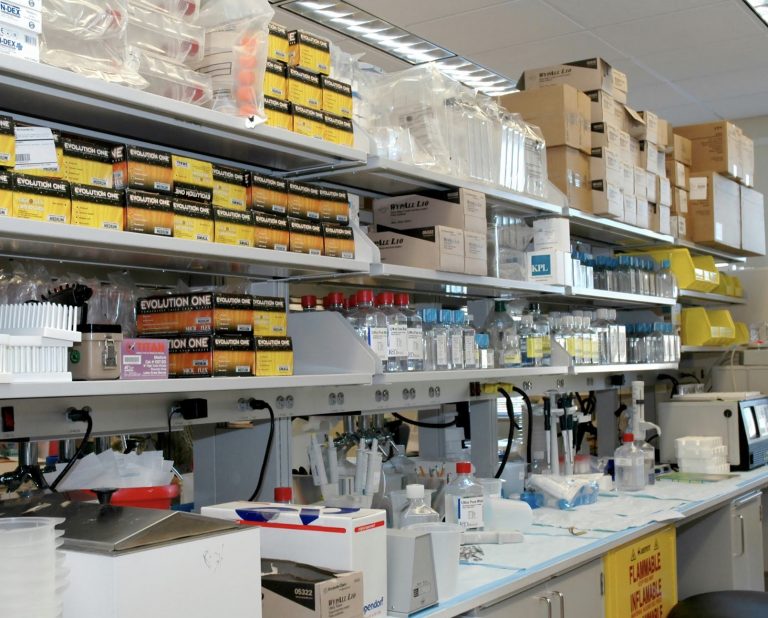Artificial intelligence has been around for decades, but 2023 saw an explosion in awareness and the impact AI has on the lives of the general public, which is why people are turning to experts to understand what AI means and how it will affect them personally.
In a recent interview with Applied Clinical Trials magazine, Seema Verma, former administrator of the Centers for Medicare & Medicaid Services and current executive vice president and general manager at Oracle Life Sciences, shared her expertise on the subject.
“AI, machine learning, and related technologies have the potential to transform the entire drug development life cycle,” Verma declared. Indeed, AI is already expediting drug discovery, from designing novel molecular structures to predicting interactions and quickening in silico (performed on a computer) screening.
“These improvements can significantly reduce the time and cost of bringing new treatments to market,” Verma explained. While such research and development efficiencies generate excitement, advances in the more immediate future also show promise. Verma expects progress in “interoperability and data sharing, a greater focus on patient centricity, and an uptick in telehealth and remote monitoring.” Cloud infrastructure and algorithms have the potential to break down long-standing data silos.
Lawmakers Assess Regulatory Landscape
The rapid integration of AI across sectors including health care has rightfully captured legislators’ attention. A recent Senate hearing convened prominent tech CEOs along with over 60 senators to discuss oversight frameworks for this disruptive technology.
The Food and Drug Administration has also recognized AI’s burgeoning influence on medical product development and clinical care delivery. It published a detailed action plan addressing crucial issues like data quality, model governance, and transparency for AI/ML-based software as a medical device.
This plan outlines a flexible, risk-based regulatory approach tailored to each unique context of use. For example, AI/ML models that directly guide clinical management decisions may warrant closer scrutiny than those limited to retrospective data analysis.
Lawmakers expressed broad support for innovating safely, though many called for additional hearings to inform legislative action. Striking the right balance between regulation and innovation stays at the forefront of the policy agenda as AI becomes increasingly integral in health care and beyond. Research, vigilance, and patience are warranted.
Empowering Patients Through Technology
Patient recruitment and retention have challenged trials for decades, but AI and automation bring new solutions. Seema Verma explains that “advanced algorithms and data analytics based on medical records” can match candidates to appropriate trials. By mining data from electronic health records, labs, imaging, genetics and more, researchers can pinpoint studies suiting each patient’s needs.
“With technology and the ability to use matching within the clinical workflow, we can connect patient care and trials seamlessly,” Verma stated. Remote monitoring via wearables will also expand, continuously tracking vital signs and symptoms to rapidly detect adverse events or complications. More flexible, technology-enabled models can substantially slash patient burden.
As Seema Verma affirmed, “By putting the patient first and aligning decisions with their needs and preferences, we can make it easier for them to participate in trials.”
Unlocking Data’s Full Potential
As with any technology, AI’s effectiveness hinges on the data behind it. “While clinical research is based on small snippets of health data, many important elements of patient clinical care data sit inaccessible and siloed,” Verma explained.
But the status quo is shifting. According to a report from the Tufts Center for the Study of Drug Development, a typical Phase III clinical trial generates 3.6 million data points. Cloud infrastructure now allows secure sharing of robust, de-identified records across institutions nationally.
“The ability to have access to multiple sources of real-world data is critical from the point of care to trials and beyond,” Verma emphasized. Real-world data from smartwatches, clinics, and beyond can provide insights unavailable in clinical trials alone. By combing through these massive and rapidly growing datasets, AI can find patterns that reshape decision-making and connect today’s fragmented health information sources.
With interoperability barriers crumbling, AI’s potential is constrained largely by available data. Integrating siloed sources can enable analysis on an unprecedented scale. “With streamlined access to trial and patient data we could see an accelerated clinical trial process, faster time to market, overall cost savings, and most importantly, more positive outcomes,” Seema Verma concluded.
Bridging Care and Research
Despite AI’s immense potential, barriers to seamless integration remain. “Providers currently have to search for clinical trials for their patients,” noted Verma, but increased interoperability could embed this data directly in clinical workflows. Oracle seeks to bridge this gap with integrated solutions uniting clinical trials and electronic health records. Still, privacy risks around health data sharing must be addressed.
Lawmakers are also assessing regulatory adjustments to balance innovation and oversight of emerging technologies like AI. While caution is prudent, the outlook shines bright. “AI is not meant to replace clinical trial professionals, but rather to supplement the work being done to support the development of groundbreaking medical products, which will positively impact countless lives,” Seema Verma said. By accelerating cumbersome tasks and connecting siloed systems, AI promises to quicken the biopharmaceutical pipeline, bringing lifesaving treatments to patients faster.
